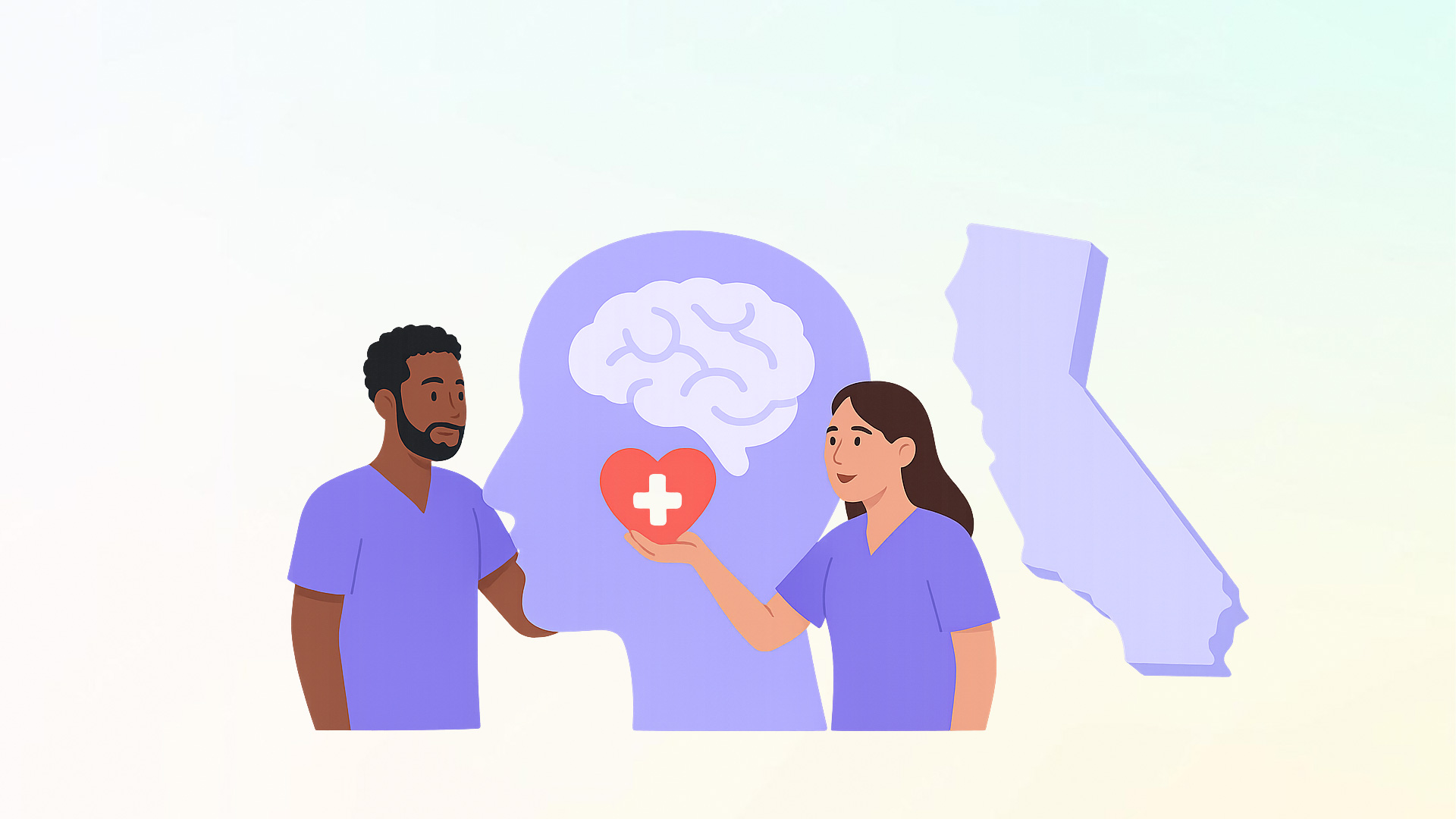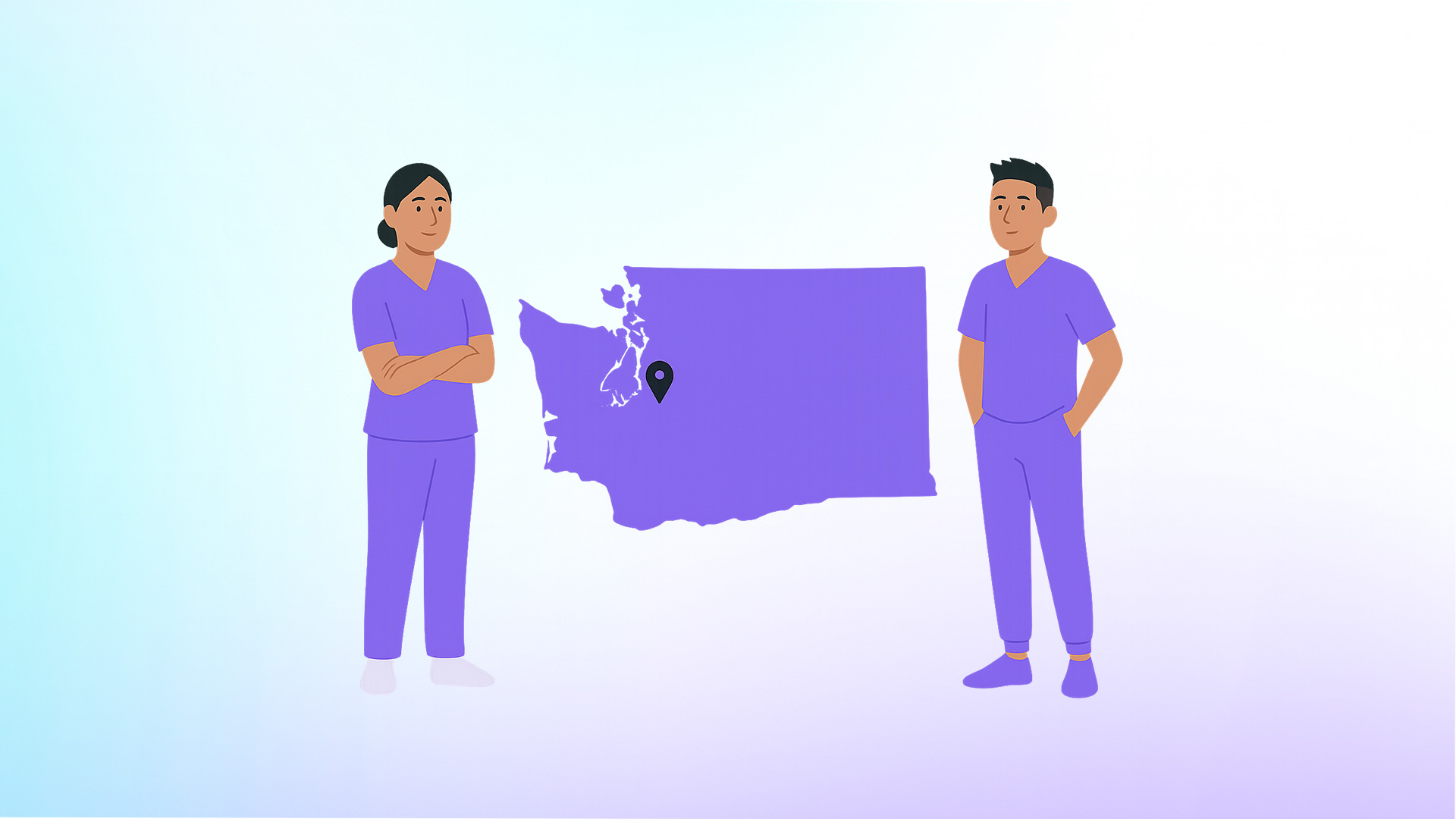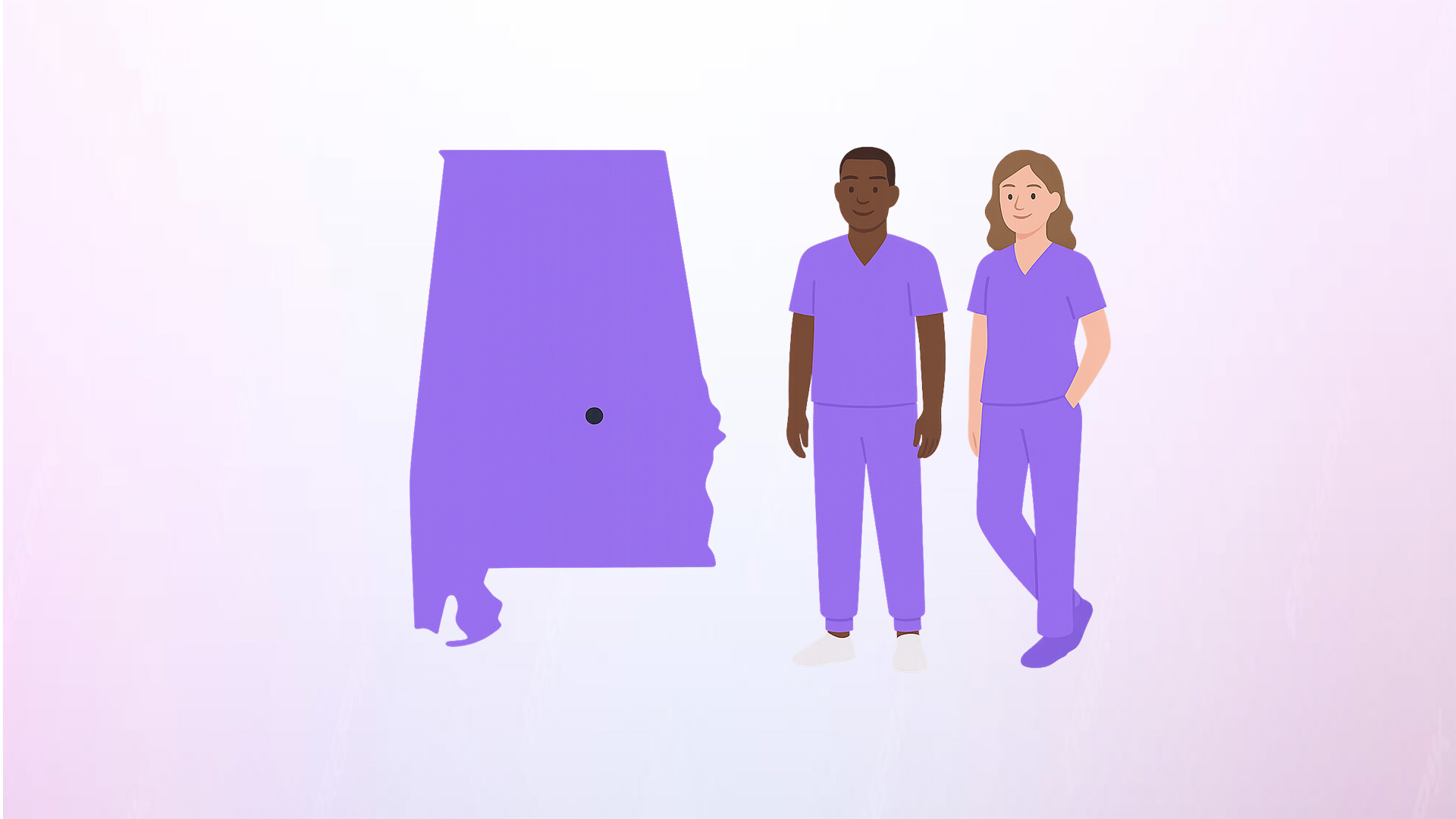Mental health nurse practitioner jobs in California are concentrated in settings like hospitals, outpatient mental health clinics, correctional facilities, schools, community organizations, and telehealth platforms. These psychiatric nurse practitioner roles are especially in demand across major urban centers like Los Angeles, San Diego, San Francisco, and underserved rural areas throughout the Central Valley and Northern California.
TL;DR – Mental Health Nurse Practitioner Jobs in California
- California has a high demand for mental health nurse practitioners, with roles in hospitals, outpatient clinics, schools, correctional systems, and telehealth—especially in cities like LA, SF, San Diego, and underserved rural areas.
- The state’s mental health crisis is deep and well-documented, with rising rates of depression, anxiety, youth self-harm, and racial disparities.
- Getting hired isn’t as easy as being certified—employers want real experience, treatment planning skills, and the ability to manage patients independently.
- Average PMHNP salaries in California exceed $147K, with some roles offering higher compensation in high-demand specialties and urban areas.
- The job search is competitive and complex, with barriers like vague listings, onboarding delays, and bias against online programs—strategy and visibility matter.
Where to Find MHNP Jobs in California (and What to Expect)
Mental health nurse practitioner jobs in California are everywhere... and yet, still somehow hard to land. How does that happen? Easy: demand is high, but expectations are higher.
California’s mental health crisis is deep: According to the California State of Public Health 2024 Full Report we’re talking about different mental health issues. 18.1% of adults reporting depression, 41.5% dealing with poor mental health days, and more youth showing up in ERs for self-harm than ever before.
But even with $4.7 billion in state investments, the hiring process hasn’t caught up to the urgency. Where do MHNPs actually work? Think beyond the standard psych clinic. You’ll find roles in:
- Community mental health centers
- County hospitals
- School-based wellness programs
- Telehealth startups
- Correctional facilities
- Veteran services
- And yes also plenty of hybrid setups, mixing in-person and virtual care
The catch? Just being certified isn’t always enough. California might be a Full Practice Authority state, but hiring managers still expect you to show receipts. They want to see real-time experience: handling crises, crafting treatment plans, adjusting meds, supporting families, and charting like a boss.
The jobs are there but the bar is high. If you’ve got solid psych skills, confidence with mood and anxiety disorders, and the ability to assess, treat, and follow up like a pro, you’re already ahead of the game.
Let’s talk numbers, cities, and top employers next. Because you deserve to know what this work pays and where the real action is
What California’s 2025 MHNP Scene Looks Like
California is home to some of the most dynamic mental health systems in the country. From county-based behavioral health programs in Sacramento to integrated care teams in San Diego, the state offers a diverse range of roles for psychiatric nurse practitioners.
These positions span inpatient units, community mental health clinics, school-based services, telepsychiatry hubs, and crisis stabilization centers—each with its own pace, structure, and patient load.
Top regions for hiring include Los Angeles, the Bay Area, Sacramento, and San Diego. These cities have seen year-over-year increases in both job postings and system-wide investments in mental health care.
Many employers, including large health systems and county-funded programs, are actively recruiting psychiatric mental health nurse practitioners to meet rising demand following California’s expanded behavioral health initiatives.
Psychiatric Nurse Practitioner Salary in California: What You Can Expect
Compensation reflects the demand. According to ZipRecruiter, the average salary for a psychiatric nurse practitioner in California is $147,626 per year, or about $12,302 per month.
Roles in higher-cost metros like San Francisco and Los Angeles often exceed $155K annually, especially when tied to emergency psych services, forensic mental health, or integrated primary care teams.
That said, not all MHNP jobs are created equal. Some counties and FQHCs offer generous loan repayment incentives and pension plans. Others compensate with greater flexibility, offering hybrid telehealth options or condensed full-time schedules.
Your total package will depend on more than just the job title. Benefits, population served, and support for continuing education make a real difference in your daily experience and long-term growth.
This isn’t just about earning power, it’s about choosing the kind of practice that keeps you engaged and effective. And once you understand where your values, skillset, and goals align within the landscape, you can start applying with clarity instead of guesswork.
Up next: what’s actually making the job hunt harder than it needs to be, even for fully certified psychiatric nurse practitioners.
Hidden Hurdles in the MHNP Job Search
California might look like a goldmine for psychiatric nurse practitioners on paper—but the job hunt tells a different story.
Even with your PMHNP-BC, state licensure, and a polished resume, mental health nurse practitioner jobs in California can be surprisingly hard to land. Why? The barriers are rarely spelled out in the listing.
- "Full Practice Authority" Isn’t Always Full Practice: Technically, California allows NPs to practice independently. But many hospital systems and clinics still impose extra layers like supervising psychiatrists, multi-month credentialing, or odd onboarding expectations that slow everything down.
- Experience Inflation Is Real: Some positions list “new grad friendly,” but what they really mean is, “must already manage a full patient panel solo.” If you haven’t already handled med management, crisis stabilization, or co-occurring disorders without hand-holding, you’ll likely get passed over.
- Vague Job Descriptions, Big Expectations: You’ll see listings that combine individual therapy, group facilitation, med refills, and ED coverage all rolled into one “full-time” gig with no mention of team support, caseload size, or boundaries.
- Bias Against Online Programs and Non-Local Training: Didn’t do your clinical hours in their network? Graduated from an online MSN program? Some employers won’t say it, but those are quiet red flags that stall your app.
- Logistical Headaches: Verifying DEA registration, waiting on background checks, and navigating multiple credentialing boards can drag hiring timelines from weeks into months. Meanwhile, you're stuck in limbo—licensed but not working.
So how do you actually stand out when everyone’s got the same credentials? Let’s break down what makes a mental health nurse practitioner undeniable in California’s saturated job market.
How to Stand Out as a Mental Health Nurse Practitioner in California
In a market as competitive and high-stakes as California, simply holding a certification like PMHNP-BC isn’t enough. If you're applying to mental health nurse practitioner jobs in California, you need to show that you’re more than clinically competent, you’re strategically aligned with the realities of mental health care in this state.
Here’s how to do it:
Focus on Depth, Not Just Range
Many applicants list every clinical site they've touched. That’s not what hiring managers remember. Instead, spotlight a few areas where your impact was measurable. Did you manage a caseload of complex trauma patients? Lead a behavioral health group for adolescents with high-risk behaviors? Employers want clear, focused stories that show your ability to diagnose, treat, and adapt, not just rotate.
Share Real-World Outcomes
Talk about treatment plans and their results. If you developed a new workflow for managing medication side effects in a community health setting or helped reduce no-show rates by improving patient engagement, those are wins worth highlighting. This is how you move from “qualified” to “irreplaceable.”
Show You're Built for Team-Based Care
California’s leading mental health sites are collaborative ecosystems. Highlight how you’ve worked alongside psychiatrists, social workers, case managers, and family support coordinators to stabilize high-risk patients or improve continuity of care. Your ability to function within interdisciplinary teams is just as valuable as your diagnostic skills.
Highlight the Populations You Understand
Mental health nurse practitioners are being pulled into settings that require more than clinical acumen—they require deep cultural understanding. If you’ve worked with LGBTQ+ youth, Spanish-speaking families, or veterans managing PTSD, say so. Showing cultural fluency and population-specific insight sets you apart in a state as diverse as California.
Keep Your Training Current—and Relevant
Ongoing education is expected. But what matters is what kind of professional development you pursue. Trauma-informed care, psychopharmacology updates, and certifications in crisis intervention or substance use treatment show you're staying aligned with California’s most urgent needs, not just chasing CE credits.
Once your materials and mindset are sharp, the next step is getting noticed by the right people, in the right places. Let’s talk about where California’s MHNPs are actually getting hired, and how they’re getting there.
Networking & Visibility in the MHNP World
In California’s mental health job market, being qualified isn’t enough, you also need to be visible. Here’s how mental health nurse practitioners can build the kind of professional footprint that leads to real offers:
- Stop relying on job boards. By the time something’s posted, it’s already saturated. The better jobs circulate via word of mouth and professional networks long before they hit Indeed.
- Use CANP (California Association for Nurse Practitioners) to your advantage. Their local chapters host events where NPs meet hiring managers face-to-face. It’s one of the few places where networking still leads directly to jobs.
- Engage with niche communities. If your focus is adolescents, veterans, or addiction psychiatry get involved with organizations and webinars tied to those populations. Targeted visibility beats generic exposure.
- Be intentional on LinkedIn. Post a brief clinical insight, comment on policy changes, or reflect on NP life in behavioral health. This isn't about going viral, it's about showing alignment with employers who are watching silently.
- Reach out directly. Message current MHNPs or directors at clinics you admire. Mention what draws you to their work or site. A respectful, tailored message beats another resume tossed into the ATS void.
And if your biggest block is getting that foot-in-the-door experience through a psych rotation? That’s where NPHub steps in—let’s break down exactly how we help you get placed without delays.
Final Take: California Needs MHNPs But the Process Needs a Strategy
Mental health nurse practitioner jobs in California aren’t just “available”, they’re essential and this isn’t just about job openings. It’s about an overwhelmed mental health system in California crying out for skilled providers while simultaneously making it hard for those same providers to break in.
You’ve got rising youth suicide rates. Black Californians facing disproportionate ER visits and misdiagnoses. Older adults at the highest risk of suicide. And still, hospitals are short-staffed, rural communities are underserved, and thousands of mental health nurse practitioner jobs sit unfilled, not because the need isn’t urgent, but because the system isn’t easy to access.
And you? You’re trained, licensed, and ready to show up. But if you’re stuck waiting on clinical hours, delayed preceptor responses, or blocked from experience you need to finish your program… all that momentum stalls.
That’s where the system breaks and where NPHub steps in. Let’s fix that next.
If you're trying to break into mental health care but can’t find a psych preceptor, it’s not your fault. Between overcrowded MSN programs, preceptor burnout, and a system that makes it really hard to verify sites or schedule rotations, plenty of mental health nurse practitioner students hit walls before they even hit the floor.
That’s where NPHub comes in! We match you with high-quality, board-certified psychiatric nurse practitioners preceptors across California. Not just “any site,” but vetted placements where you’ll gain real experience in diagnosing, managing, and treating mental health disorders whether that’s trauma care, psychopharm, group therapy, or underserved adult psychiatry. We help you:
- Secure placements fast—before application windows close or deadlines pile up
- Access both in-person and telehealth clinical sites that align with your goals
- Get paperwork, hours, and documentation handled—no back-and-forth confusion
- Finish your program without burnout, ghosting, or “hoping someone replies to your email”
Whether you're mid-program or feeling stuck on your final psych rotation, we’ve got your back.
Frequently Asked Questions: Mental Health Nurse Practitioner Jobs in California
What are the most common settings for mental health nurse practitioner jobs in California?
MHNPs work across community clinics, outpatient psychiatry, hospitals, correctional facilities, telehealth platforms, and school-based services. The demand spans urban hubs like Los Angeles, San Francisco, and San Diego, as well as underserved rural counties.
Do I need to complete in-person clinical hours in California to apply for jobs?
While not always required, completing clinical hours locally gives you a major edge. Many employers want MHNPs who already understand California's patient populations, healthcare systems, and documentation practices.
What credentials do I need to land a MHNP job in California?
You'll need California BRN licensure, PMHNP-BC certification from the American Nurses Credentialing Center, and often a DEA number. Some roles also prefer prior RN or NP experience in psych or behavioral health.
Are telehealth mental health NP jobs easier to get in California?
Telehealth is growing fast in California, but it’s not easy, you still need full licensure and demonstrated competency in assessment, prescribing, and crisis management. Employers want MHNPs who can diagnose, treat, and manage mental health disorders independently.
Can new PMHNPs get hired in California without prior psych experience?
It’s tough, but not impossible. To increase your chances, highlight experience with treatment plans, psychotherapy techniques, and mental health care across diverse populations even if it came from school rotations.
Do California employers prefer in-person over online MSN-PMHNP programs?
Some do. There’s skepticism around online-only education, especially if your program didn’t verify or assist with clinical placements. Be ready to explain your training, supervision model, and skill application.
How do I find high-quality mental health nurse practitioner jobs in California?
Skip the generic job boards. Use platforms that filter by experience level, setting, credentialing requirements, and full-time vs part-time options. Check FQHCs, behavioral health orgs, VA clinics, and telepsychiatry startups.
How can NPHub support my MHNP career goals in California?
Whether you're a student needing preceptors or a licensed MHNP shifting specialties, NPHub connects you with verified psychiatric clinical sites across California. We help you complete rotations, verify hours, and position yourself for long-term job success, minus the ghosting.
Key Definitions: Critical Care NP Terms You Should Know
- Mental Health Nurse Practitioner (MHNP)
A nurse practitioner specializing in the diagnosis, treatment, and management of mental health disorders. Often certified as a PMHNP-BC by the American Nurses Credentialing Center, MHNPs provide psychotherapy, prescribe medication, and develop treatment plans. - Psychiatric Mental Health Nurse Practitioner (PMHNP)
An advanced practice nurse with a focus on psychiatric care across the lifespan. In California, PMHNPs can practice independently with appropriate licensure and are key healthcare providers in both in-person and telehealth settings. - Clinical Hours
Supervised practical experiences required during an MSN or DNP program to gain hands-on skills in diagnosing and treating psychiatric patients. Clinical hours are essential for certification and licensure. - PMHNP-BC
Board certification for psychiatric mental health nurse practitioners, issued by the American Nurses Credentialing Center (ANCC). A mandatory credential for most MHNP jobs in California. - Treatment Plans
Personalized, evidence-based strategies MHNPs create to guide therapy, medication management, and patient goals. Treatment plans are central to patient-centered mental health care. - California Board of Registered Nursing (BRN)
The regulatory body that issues NP licenses in California and oversees compliance with state-specific practice and supervision laws. - Telehealth
Remote delivery of mental health care via video or phone. A fast-growing field for MHNPs in California, offering flexibility and expanded access for underserved communities. - Full Practice Authority
In California, NPs have the legal ability to evaluate, diagnose, treat, and prescribe without physician oversight, as long as they meet all post-licensure requirements. - Psychopharmacology
The study and application of medications for mental health disorders. MHNPs must be proficient in this area to manage patient medications effectively. - Trauma-Informed Care
An approach that acknowledges and responds to the impact of trauma on a patient’s mental and physical health. A vital skill for MHNPs treating both adults and children.
About the author
- NPHub Staff
At NPHub, we live and breathe clinical placements. Our team is made up of nurse practitioners, clinical coordinators, placement advisors, and former students who’ve been through the process themselves. We work directly with NP students across the country to help them secure high-quality preceptorships and graduate on time with confidence. - Last updated
Jun 24, 2025 - Fact-checked by
NPHub Clinical Placement Experts & Student Support Team - Sources and references
- https://www.ziprecruiter.com/Salaries/Psychiatric-Nurse-Practitioner-Salary--in-California
- https://www.cdph.ca.gov/Programs/OPP/CDPH%20Document%20Library/California-State-of-Public-Health-Full-Report-2024.pdf
- https://www.indeed.com/q-psychiatric-nurse-practitioner-l-california-jobs.html?vjk=a252360cfe4015b1
Find a preceptor who cares with NPHub
Book a rotation.webp)








.webp)


.webp)



.webp)